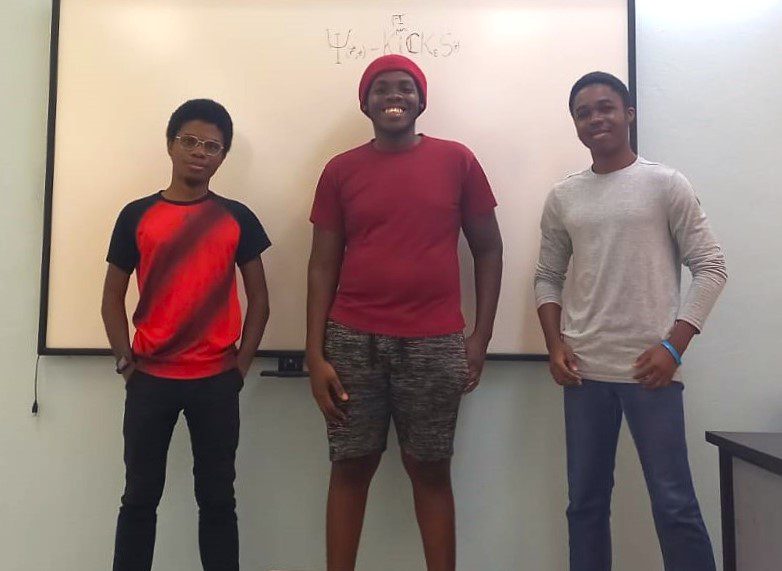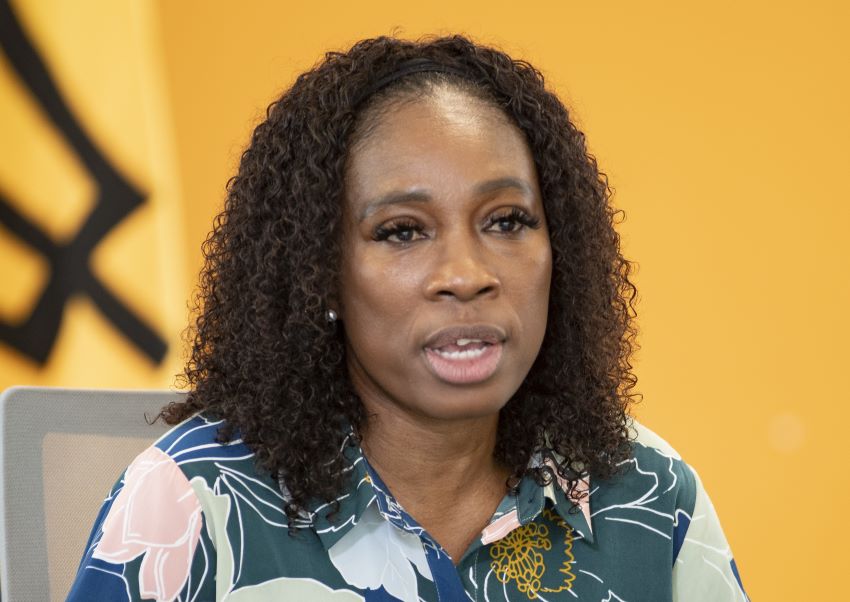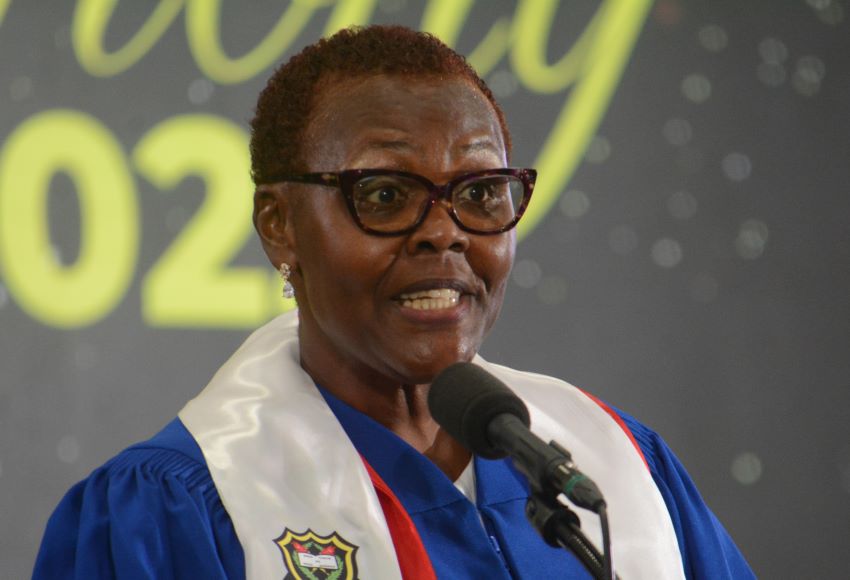Barbados won gold, silver, and bronze in different categories of the recently concluded Caribbean STEM Olympiads, hosted virtually by the Caribbean Science Foundation (CSF) from January 17 to 21.
Team Psi-Kicks, comprising UWI Cave Hill students Simeon Green, Ian Francis and Tyreke Jones, copped the gold medal in the Math Olympiad Level 3 event. Kolij Robotics Club, consisting of Jovani Gittens, Nathan Nicholls, Tykairi Sargeant and Maliqua Cherubin of Harrison College, won the silver medal in the Robotics Olympiad Level 2 with their Plant Care Robot. The Random Walk team of Aian Deane-Warner and Nalani Chassang from Queen’s College took the bronze in the Math Olympiad Level 2 event.
A total of 131 students from 11 Caribbean countries registered for the 2024 Olympiads. After the preliminary rounds, 39 teams (83 students) made it to the finals. There were 47 finalists in the Math Olympiad, 22 in the Computer Coding Olympiad, and 14 in the Robotics Olympiad. Medal certificates and cash prizes of US $500, $400, $300 and $200 were awarded to the teams winning platinum, gold, silver, and bronze medals, respectively.
Interim Executive Director of the CSF, Professor Cardinal Warde, stated: “The STEM outlook for the region is very positive. This year we raised the bar a little higher than it was in the inaugural year (2023) for the Math Olympiad, and I was again impressed by the performance of the medallists.
“To further raise the bar for our robotics and coding efforts, starting in April of 2024, the CSF will offer coaching sessions for interested robotics and coding teams to help them prepare for our 2025 Robotics and Computer Coding Olympiads.”
In these Science, Technology, Engineering and Math Olympiads, individuals and teams representing educational institutions, clubs, or themselves competed in the Math Olympiad, Computer Coding Olympiad, and Robotics Olympiad at three different age levels -12 to 15, 16 to 18, and 19 to 21.
The Math Olympiad was held in a Jeopardy-style format and covered topics ranging from consumer arithmetic to vector calculus. The Computer Coding Olympiad tasked applicants to create apps, games, and websites aimed at solving a challenge faced by Caribbean communities.
The challenges tackled by teams in the 2024 Olympiads included geohazards and climate change, inter and intra country transportation, public health, non-communicable diseases, crime, and money movement and financial education. The Robotics Olympiad tasked applicants with building innovative robots from kits at Level 1, and complex robots starting from scratch with a set of random parts at Level 3.
Jamaica led the medal count with eight medals, followed by Antigua and Barbuda with six, Belize with four, Barbados with three, Saint Lucia with two, and Grenada, Guyana, Saint Kitts & Nevis and Trinidad &Tobago with one medal each. (PR/GIS)
Caption: Team “Psi-Kicks” consisting of Simeon Green, Ian Francis and Tyreke Jones of the UWI, earned the gold medal in the Math Level 3 Olympiad

 Local1 week ago
Local1 week ago
 International3 weeks ago
International3 weeks ago
 Business3 weeks ago
Business3 weeks ago
 Tourism2 weeks ago
Tourism2 weeks ago
 Sports1 week ago
Sports1 week ago
 Government2 weeks ago
Government2 weeks ago
 Local3 weeks ago
Local3 weeks ago
 Government4 weeks ago
Government4 weeks ago
































